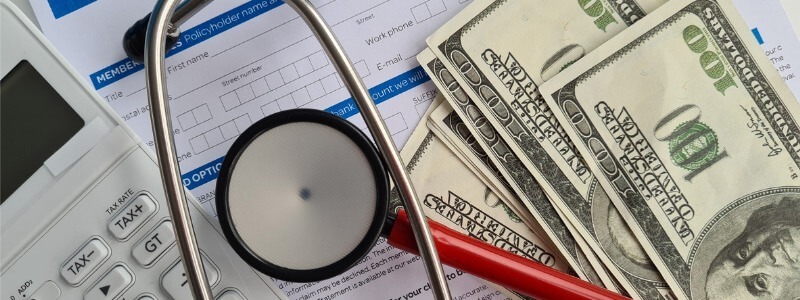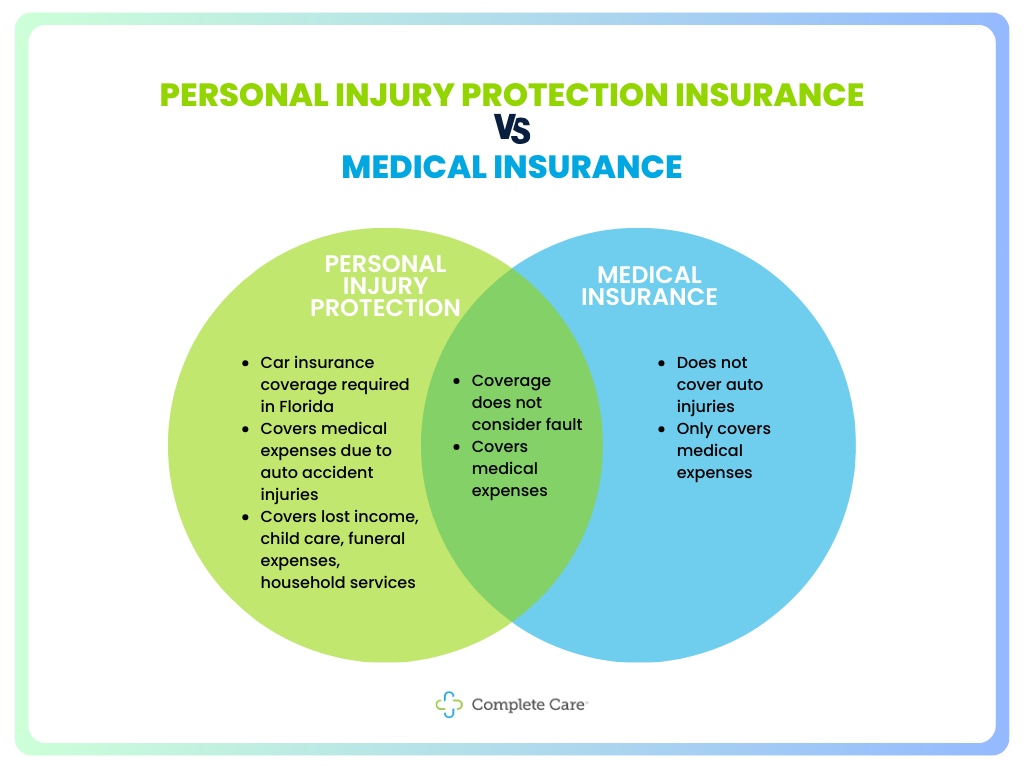Yes, health insurance can cover car accidents in Florida. But it depends on your policy and the type of coverage you have.
Car accidents can be stressful and confusing. Knowing if your health insurance covers these incidents is crucial. In Florida, the rules and policies might seem complex. Different types of insurance, like Personal Injury Protection (PIP), play a role. Understanding your coverage helps you make informed decisions.
This blog will explain how health insurance works in car accidents in Florida. We will break down the details and make it simple. Stay with us to learn more about your protection and peace of mind.
Health Insurance Basics
Understanding health insurance can seem complex. But it is important. Especially when considering unexpected events like car accidents. This section covers the basics of health insurance. Knowing these basics helps you understand if your plan covers car accidents in Florida.
Types Of Health Insurance Plans
Health insurance plans come in various types. Each plan offers different coverage options. The most common types include HMOs, PPOs, EPOs, and POS plans.
HMOs, or Health Maintenance Organizations, often have lower premiums. But you must use a network of doctors. PPOs, or Preferred Provider Organizations, give more flexibility. You can see any doctor, but it costs less to stay in-network.
EPOs, or Exclusive Provider Organizations, blend features of HMOs and PPOs. They require you to use the network but do not need referrals. POS plans, or Point of Service plans, allow seeing out-of-network doctors. But you need a referral from your primary doctor.
Coverage Scope
The scope of coverage varies by plan. Some plans cover more services. Others focus on basic care. Coverage often includes hospital stays, surgeries, and emergency services.
Check if your plan covers car accidents. Many plans do. But the extent of coverage may differ. Some plans cover all medical expenses from an accident. Others may only cover part of the costs. Ensure you understand what your plan includes.
Reading your policy details helps. Contact your insurance provider with questions. This ensures clarity on what is covered. Knowing your coverage helps you be prepared. Especially in the event of a car accident.
Car Accidents In Florida
Car accidents are common in Florida. Many factors contribute to this issue. Understanding these factors can help you stay safe and informed.
Common Causes
Many factors cause car accidents in Florida. Some of the most common include:
- Distracted Driving: Using phones, eating, or talking while driving.
- Speeding: Driving over the speed limit or too fast for conditions.
- Drunk Driving: Driving under the influence of alcohol or drugs.
- Weather Conditions: Rain, fog, and hurricanes make roads dangerous.
- Running Red Lights: Ignoring traffic signals and signs.
- Reckless Driving: Aggressive or careless driving behavior.
State Regulations
Florida has specific laws and regulations for car accidents. Knowing these can help you understand your rights and responsibilities.
| Regulation | Description |
|---|---|
| No-Fault Insurance | Florida is a no-fault state. Each driver’s insurance covers their own injuries. |
| Personal Injury Protection (PIP) | PIP insurance is mandatory. It covers medical expenses up to a certain limit. |
| Bodily Injury Liability (BIL) | BIL is not required. But it helps cover costs if you are at fault. |
| Reporting Accidents | Accidents causing injury or damage over $500 must be reported. |
Knowing the common causes and state regulations can help you navigate car accidents in Florida. Stay informed and safe on the roads.
Health Insurance Coverage
Understanding health insurance coverage is crucial if you are involved in a car accident in Florida. Many people wonder if their health insurance will cover the costs associated with such accidents. This section will help you understand what your health insurance typically covers and what it does not.
What Is Covered
Health insurance often covers certain medical expenses resulting from car accidents. Here are some common coverages:
- Emergency room visits
- Hospital stays
- Surgery costs
- Doctor visits
- Prescription medications
These coverages can significantly reduce the financial burden after an accident. Health insurance policies vary, so it’s important to review your specific plan details.
What Is Not Covered
Health insurance does not cover all expenses related to car accidents. Here are some things typically not covered:
- Vehicle repair costs
- Property damage
- Legal fees
- Lost wages
- Pain and suffering
For these expenses, you may need to rely on other types of insurance or legal settlements. Understanding these limitations helps you prepare better for unforeseen events.
Remember to always check with your insurance provider for specific coverage details and exceptions.
Filing A Claim
Filing a claim after a car accident in Florida can be confusing. Health insurance often covers medical expenses, but understanding the process is key. This section will help you navigate the steps and necessary documentation for a smooth claim process.
Steps To Take
- Contact Your Insurance Company: Report the accident as soon as possible.
- Seek Medical Attention: Visit a doctor even if injuries seem minor.
- Document Everything: Keep records of medical treatments and expenses.
- Follow Up: Stay in touch with your insurance agent for updates.
Necessary Documentation
Proper documentation is crucial for a successful claim. Here is what you need:
- Accident Report: Obtain a copy from the police.
- Medical Records: Gather all reports, prescriptions, and bills.
- Insurance Details: Keep your policy number and contact information handy.
- Photographs: Take pictures of injuries and car damage.
- Witness Statements: Collect contact information of witnesses if available.
Filing a claim after a car accident requires careful attention. Following these steps and having the right documentation will make the process smoother.
Dealing With Denials
Dealing with a health insurance denial after a car accident can be stressful. It is important to know why your claim was denied and how to appeal the decision. This guide will help you understand common reasons for denial and the steps you can take to appeal.
Common Reasons For Denial
Insurance companies may deny claims for several reasons. Understanding these reasons can help you avoid future denials.
- Incomplete Documentation: Missing documents can lead to a denial. Ensure all necessary paperwork is submitted.
- Policy Exclusions: Some policies exclude certain types of accidents. Read your policy to know what is covered.
- Pre-existing Conditions: Claims may be denied if the injury is related to a pre-existing condition.
- Late Filing: Filing a claim after the deadline can result in a denial. Always file promptly.
- Non-Network Providers: Using providers outside the insurance network can lead to denial. Check if your provider is in-network.
Appeal Process
If your claim is denied, you have the right to appeal. Follow these steps to start the appeal process:
- Review the Denial Letter: Read the denial letter carefully to understand the reasons for denial.
- Gather Documentation: Collect any additional documents that support your claim. This may include medical records, police reports, and witness statements.
- Write an Appeal Letter: Explain why you believe the denial was incorrect. Include evidence and reference your policy.
- Submit the Appeal: Send your appeal letter and documents to the insurance company. Keep copies of everything for your records.
- Follow Up: Contact the insurance company to ensure they received your appeal. Ask about the timeline for a decision.
Understanding and following these steps can increase your chances of a successful appeal. If you need help, consider consulting with a professional.

Credit: tampabayfloridalawyers.com
Additional Coverage Options
Understanding the various coverage options for car accidents in Florida can be complex. Many drivers wonder if their health insurance covers car accidents. The good news is there are additional coverage options available to provide extra protection. Let’s explore these options.
Personal Injury Protection (pip)
Personal Injury Protection, or PIP, is mandatory in Florida. It provides coverage for medical expenses regardless of who caused the accident. PIP covers:
- Medical bills
- Lost wages
- Necessary services
- Funeral expenses
Each driver must carry a minimum of $10,000 in PIP coverage. This ensures quick access to medical care following an accident.
Medical Payments Coverage
Medical Payments Coverage, also known as MedPay, is an optional coverage. It acts as a supplement to PIP. MedPay covers:
- Deductibles and co-pays
- Medical expenses exceeding PIP limits
- Immediate family members’ medical costs
Unlike PIP, MedPay does not have a set minimum requirement. You can choose the amount that best fits your needs. This additional coverage can provide peace of mind and reduce out-of-pocket expenses.
| Coverage Type | Mandatory | Benefits |
|---|---|---|
| Personal Injury Protection (PIP) | Yes | Medical bills, lost wages, services, funeral expenses |
| Medical Payments Coverage (MedPay) | No | Deductibles, co-pays, additional medical expenses |
Both PIP and MedPay offer critical support in the event of a car accident. Understanding and choosing the right coverage can make a significant difference in your recovery process.
Legal Considerations
Legal considerations play a crucial role in determining if health insurance covers car accidents in Florida. Understanding the legal aspects helps you navigate through insurance claims smoothly. It’s essential to know when to seek legal help and understand liability in car accidents.
When To Consult A Lawyer
Consult a lawyer if you face complex insurance claims. A lawyer can help you understand your rights. They also assist in dealing with insurance companies. If injuries are severe, legal advice is critical. It ensures you receive fair compensation.
Understanding Liability
Liability determines who is responsible for the accident. In Florida, the at-fault driver is liable for damages. This affects how insurance claims are processed. Knowing who is liable helps in filing accurate claims. It also impacts the amount of compensation you receive. Understanding liability ensures you are not wrongly blamed.

Credit: www.complete-care.com

Credit: www.coveringcfl.net
Frequently Asked Questions
Does Health Insurance Cover Car Accident Injuries?
Yes, health insurance typically covers injuries from car accidents. However, coverage may depend on your policy’s specifics.
Who Pays Medical Bills In A Florida Car Accident?
In Florida, Personal Injury Protection (PIP) insurance usually pays medical bills up to $10,000, regardless of fault.
Can I Use Health Insurance After A Car Accident?
Yes, you can use your health insurance after your PIP benefits are exhausted.
Does Florida Require Pip Insurance For Car Accidents?
Yes, Florida law requires drivers to have Personal Injury Protection (PIP) insurance for car accident injuries.
Conclusion
Health insurance can help cover car accident costs in Florida. Policies vary, so always check your specific plan. Personal Injury Protection (PIP) is mandatory and covers some expenses. Understanding your coverage ensures you’re prepared. Always review your policy details. This knowledge can save you stress.
Stay informed and drive safely.
